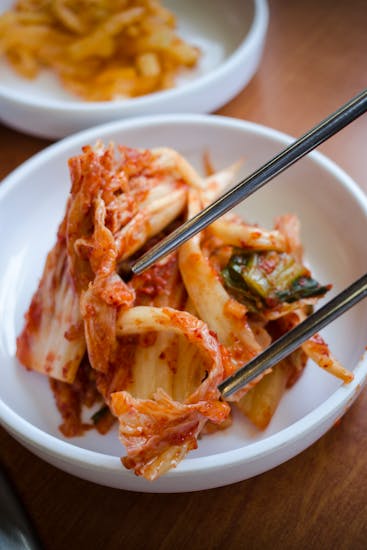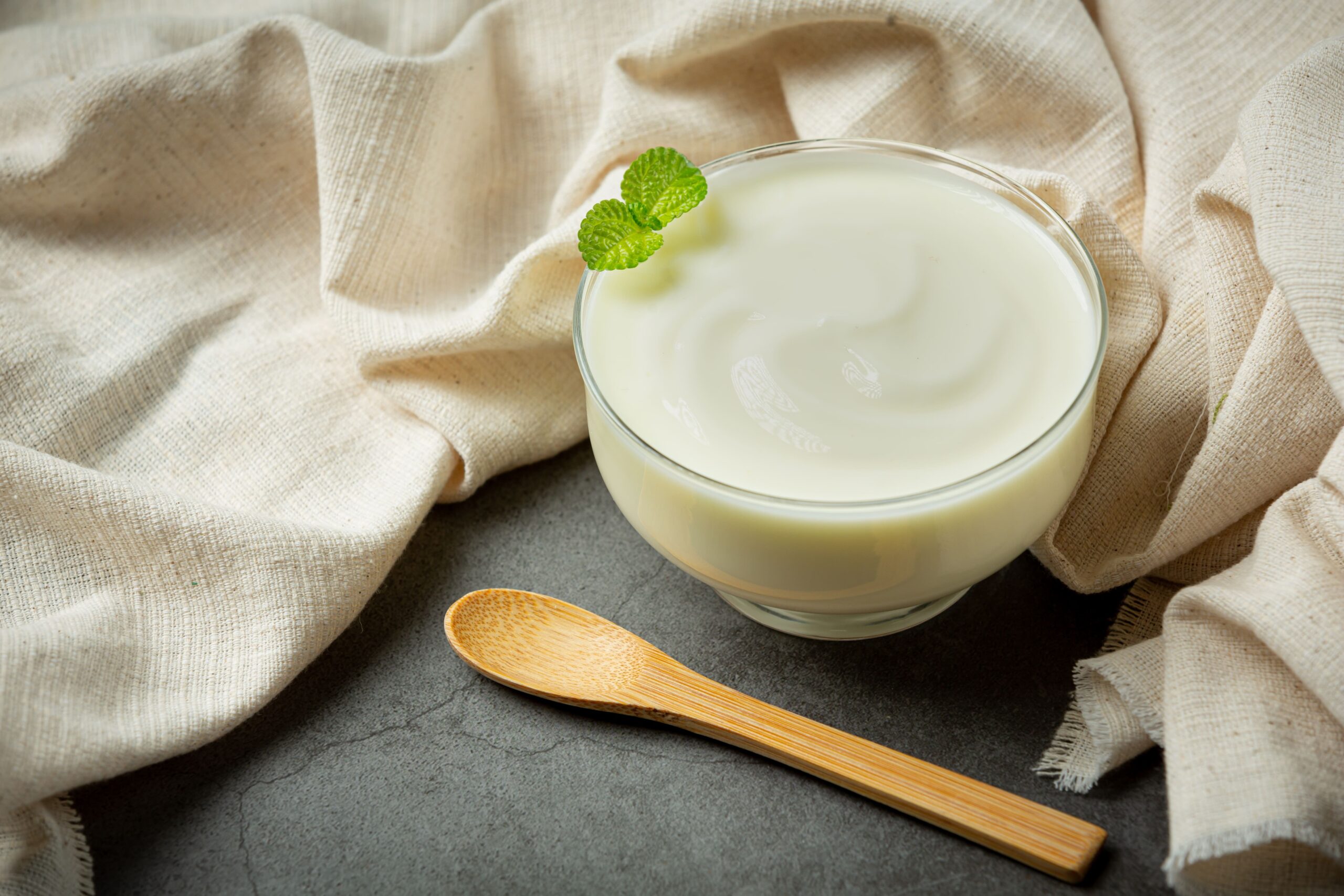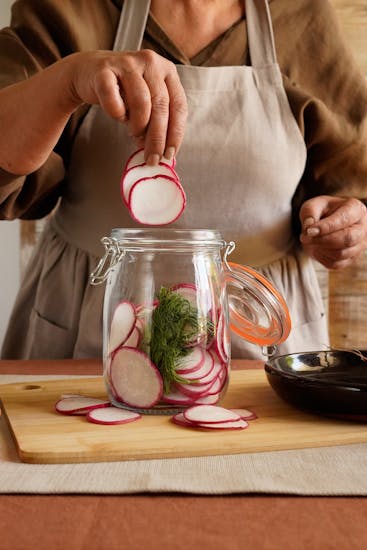Probiotic-Rich Foods: A List of Natural Sources for a Healthier Gut

Probiotics, the beneficial bacteria that help maintain a balanced gut microbiome, are essential for overall health. While supplements like Bioma Probiotics are an excellent way to support gut health, consuming probiotic-rich foods is another natural and delicious way to introduce these good bacteria into your system. This article explores the best probiotic foods, their health benefits, and how to incorporate them into your diet for a healthier gut.
Understanding Probiotic Foods
Probiotic foods are those that contain live beneficial bacteria or microorganisms. These foods undergo a fermentation process, which enhances their probiotic properties and makes them a powerhouse of gut-friendly nutrients. Regular consumption of probiotics can improve digestion, support the immune system, and promote a healthy balance of gut bacteria.
Common Probiotic Foods
Here’s a list of probiotic foods commonly praised for their health benefits:
- Yogurt
One of the most well-known probiotic foods, yogurt is rich in live active cultures like Lactobacillus bulgaricus and Streptococcus thermophilus. Look for options labeled as containing “live and active cultures” to ensure probiotic content. - Kefir
A tangy, fermented milk drink, kefir is packed with multiple strains of probiotics, making it one of the high probiotic foods for gut health. - Sauerkraut
Made from fermented cabbage, sauerkraut is a probiotic-rich food that also provides a boost of vitamins and fiber. - Kimchi
This Korean favorite, probiotic kimchi, is a spicy, fermented vegetable dish teeming with live cultures and antioxidants. - Miso
A staple in Japanese cuisine, miso is made by fermenting soybeans and is loaded with good probiotic foods that support digestion and gut health. - Pickles
Fermented pickles (not the vinegar-brined variety) are a tasty snack full of live cultures. Look for probiotic pickles made through natural fermentation. - Cottage Cheese Probiotic
Some brands of cottage cheese contain probiotics, making it a protein-packed addition to a probiotic-rich diet. - Curd
Many people wonder, is curd probiotic? The answer is yes—if it contains live cultures. Curd is a staple in many diets and supports healthy digestion. - Kombucha
A fizzy fermented tea, kombucha is loaded with probiotics and is a trendy addition to the world of probiotic drinks. - Natto
A traditional Japanese food made from fermented soybeans, natto contains the unique probiotic strain Bacillus subtilis. - Sourdough Bread
The fermentation process used in sourdough bread creates a food rich in beneficial bacteria. - Tempeh
A fermented soybean product, tempeh is a protein-rich food with added probiotic benefits. - Buttermilk
Traditional buttermilk (not the cultured version) is another example of probiotic-rich dairy. - Prunes
While prunes are naturally high in fiber, some varieties are enhanced with probiotics, promoting regular bowel movements and gut health. - Apricots
Dried apricots infused with probiotics are an emerging trend in functional foods, offering a sweet way to boost gut health. - Soft and Aged Cheeses
Cheeses like Gouda and Swiss often contain probiotics, depending on their production process. - Oatmeal
While oats themselves are prebiotic, adding probiotic strains during preparation can make probiotic oatmeal a gut-friendly breakfast option. - Yogurt Gummies
For those who don’t enjoy traditional fermented foods, yogurt gummies are a convenient and tasty alternative. - Coconut Yogurt
A dairy-free option, probiotic coconut yogurt provides the same benefits as traditional yogurt and is ideal for vegans or those with lactose intolerance. - Fermented Vegetables
Beyond kimchi and sauerkraut, other fermented vegetables like carrots and beets are also excellent sources of probiotics.

Health Benefits of Probiotic-Rich Foods
Consuming good probiotic foods regularly offers a range of health benefits:
- Improved Digestion
Probiotics help maintain a healthy gut microbiota, reducing symptoms of bloating, constipation, and diarrhea. - Enhanced Immune System
A balanced gut supports a strong immune response, helping your body fight infections and inflammation. - Mental Health Support
The gut-brain axis links gut health to mental well-being, with probiotics potentially reducing stress and anxiety. - Metabolic Health
Probiotics may aid in weight management by influencing metabolism and hunger hormones. - Support for Chronic Diseases
Probiotics have shown promise in managing conditions like irritable bowel syndrome (IBS) and inflammatory bowel diseases (IBD). - Regular Bowel Movements
High-fiber and probiotic foods like probiotic prunes help promote healthy and regular bowel movements.
Homemade Fermented Foods
Making fermented foods at home is a rewarding way to ensure they contain live cultures. Here are some DIY ideas:
- Homemade Yogurt
Use a starter culture to make yogurt at home, ensuring live probiotics without added sugar or preservatives. - Lactofermented Vegetables
Ferment vegetables like cucumbers, carrots, or radishes with saltwater brine to create your own probiotic pickles. - Homemade Kombucha
Brew kombucha at home with a SCOBY (symbiotic culture of bacteria and yeast) for a refreshing and probiotic-packed drink. - Miso Paste
Ferment soybeans with koji (a type of mold) to make homemade miso, a probiotic-rich food that can be used in soups and marinades.

Complementing Probiotic Foods with Bioma Probiotics
While consuming the best probiotic foods is beneficial, supplements like Bioma Probiotics ensure you receive consistent and effective doses of beneficial bacteria. Bioma combines probiotics, prebiotics, and postbiotics for a comprehensive approach to gut health.
- Prebiotics feed the probiotics, enhancing their activity.
- Postbiotics promote intestinal lining health and reduce inflammation.
- Bioma supplements complement dietary probiotics, ensuring a well-rounded microbiome support system.
Risks and Considerations
Although probiotic foods are generally safe, there are a few considerations:
- Side Effects
Some individuals may experience mild bloating or gas when first introducing probiotics to their diet. - Pasteurization
Be cautious of pasteurized products, as the heat process can kill beneficial bacteria. - Medical Conditions
People with compromised immune systems should consult a healthcare provider before consuming large amounts of probiotic foods.
Top 3 Probiotic Foods to Start With
If you’re new to probiotics, start with these 3 probiotic foods:
- Yogurt: Easy to find and versatile.
- Kefir: A drinkable option with multiple strains of bacteria.
- Kimchi: Adds a flavorful, spicy kick to meals.

Final Thoughts
Probiotics are essential for maintaining a healthy gut, and incorporating probiotic-rich foods into your diet is an easy and enjoyable way to support your microbiome. From staples like yogurt and kefir to unique options like probiotic a more targeted approach, Bioma Probiotics can complement your dietary intake, ensuring consistent support for gut health. By combining natural foods and high-quality supplements, you can optimize your digestion, immunity, and overall well-being. Start incorporating these top 20 probiotic foods into your meals today and experience the benefits of a balanced microbiome.



